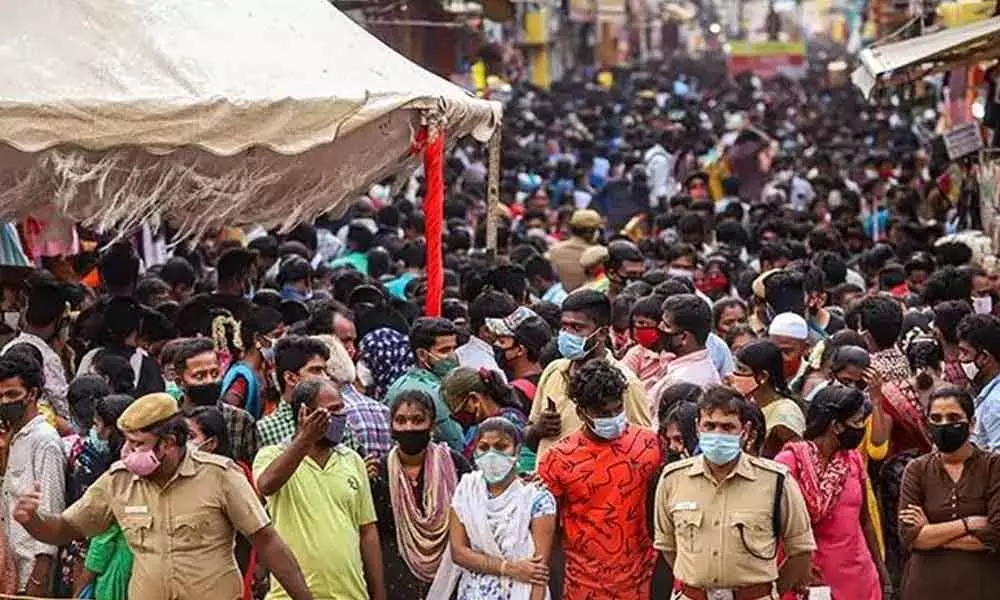Cause for Concern: Covid 'R-Value' on the rise in India

New Delhi: India's 'R-Value' is inching up, and it's a cause of concern, AIIMS Chief Dr Randeep Guleria said, stressing on the need of aggressive containment strategies in the parts of the country that are witnessing a surge in fresh Covid infections. His remarks come amid concern over a third wave.
"Starting from .96, and going all the way up to 1, the rise in R-Value is a cause of concern. Simply put, this means that the chances of infection spreading from a person, who has Covid, to others have gone up.
What is R-Value?
Also known as R0-Value, R-Factor or number, R-Value is the effective reproductive number of a virus. That is - the number of people an infected person will pass on the virus to.
For example: If measles - a highly contagious infectious disease - has an R number of 10 in populations without immunity, this means every infected person will spread the virus to 10 others, on average, who will then infect 10 more and so on. During the second wave, when Covid-19 spread was rampant across India, scientists had estimated that the overall R-Value in the country to be 1.37 from March 9-April 21.
It declined to 1.18 between April 24 and May 1 and further to 1.1 between April 29 and May 7. With an R-Value of 1.11, Kerala has been reporting over 22,000 cases for the past three days.
The areas which are witnessing this surge should bring in restrictions and employ "test, track, and treat" strategy to break the chain of transmission," Dr Guleria said. The R-Factor is an indicator of the effective reproductive number of a virus.
Dr Guleria said: "Measles or chicken pox used to have R factor of 8 or more, which means one person could infect eight others. That suggests that coronavirus is highly infectious. We saw that during the second wave in India, because entire families were getting infected.
This happens with chicken pox also. In a similar manner, when one person has Delta variant, the whole family is vulnerable."
With a large majority of fresh Covid cases coming from Kerala, there's a need to evaluate the surge in infections, Dr Guleria further stressed. "In the beginning, Kerala had set a precedent for others by managing the pandemic well. They also had an aggressive vaccination drive.
Yet despite that, are witnessing a spike in a way that's different from other parts of the country. This needs to be evaluated.
Also, is there a variant behind the surge? Are containment strategies being aggressively followed - all this needs to be evaluated," the AIIMS chief explained.
Neighbouring states like Karnataka and Tamil Nadu also need to adopt aggressive testing strategy to break the chain of transmission, he added.


